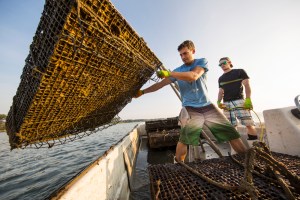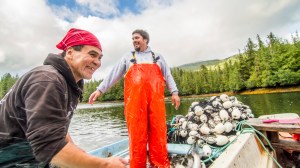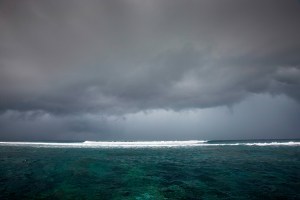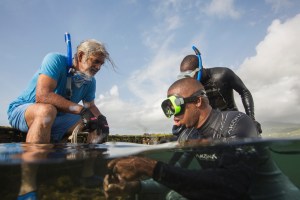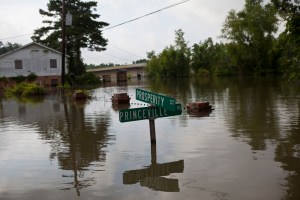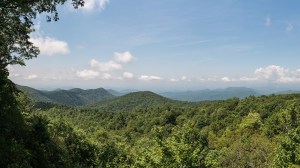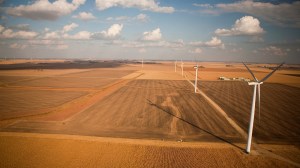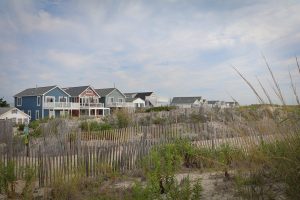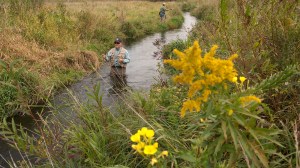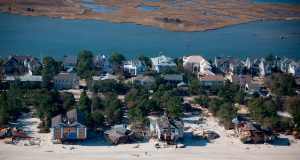Discover stories in Financing Nature
Aquaculture Could Be Conservation’s Secret Weapon
Aquaculture has vast potential as a tool for conservation, providing food for people while benefiting the environment.
Science and Economic Development in the Emerald Edge
Working in partnership with indigenous peoples and local communities is critically important to achieving outcomes for people and nature. Social science is the backbone of The Nature Conservancy’s approach to strengthening voice, choice and action.
Making Nature’s Value Visible (To All): Coral Reef Edition
To all the benefits of coral reefs, add one more: flood reduction. Without coral reefs, annual global damages from flooding would double.
Field Test-Grenada: Lose the Reef, Lose the Beach
Coral reefs are the coasts’ first line of defense against erosion and flooding in many reef-lined coastlines around the globe.
New Study Shows Flood Risks Across the U.S. are Underestimated (in a Big Way)
New research has sobering news for people living in the Lower 48 United States: you may be at risk from river flooding and not even know it until the waters start to rise.
Rehabilitating Watershed Natural Infrastructure in Africa: A Smart Investment to Reduce Urban Flood Damages
The economic case for nature-based solutions as part of a comprehensive approach to environmental problems.
Land Rich and Cash Poor
"For me as a black southerner who loves nature, the freedom of wildness is worth a life's weight in gold."
Bumper-Crop Birds: Pop-Up Wetlands Are a Success in California
By partnering with rice farmers in California, the Conservancy is transforming fields into pop-up wetlands for migrant shorebirds, yielding the largest average shorebird densities ever reported for agriculture in the region.
Wind’s Big Footprint: Clean Energy Still Needs Safeguards for Nature
Wind turbines are a vital part of a clean energy future, but we can we site them in a way that minimizes impacts to birds, bats and natural habitats?
Saved by Sand Dunes
On the five year anniversary of Hurricane Sandy, a return to the Jersey Shore towns saved by sand dunes.
More Trout, Less Algae: Wisconsin Stream Demonstrates Benefits of Targeted Conservation
In Wisconsin’s Pecatonica River watershed, conservationists have targeted conservation practices on farms where they can make the most difference for the least cost. The results benefit everything from water quality to trout.
Coastal Wetlands Prevented $625M in Property Damage During Hurricane Sandy
Put a dollar value on it: engineers, ecologists and risk modelers team up to measure the value of coastal wetlands for reducing hurricane risk.
